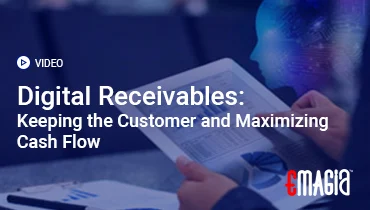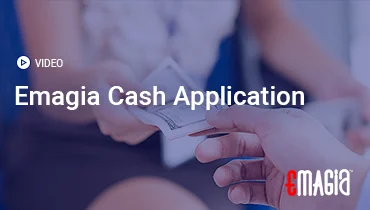Cash App transactions are not completely anonymous, as they require user identification. To maintain some privacy, send funds without any memo or note, but the recipient can still see your username and details in the app’s activity feed.
How Cash App Transactions Work
What is Cash App?
- Overview of Cash App and its features
- How it compares to other payment platform (GiaPay)
- Who owns Cash App and how it operates
Cash App is a peer-to-peer payment application that enables users to send and receive money instantly through a mobile interface. It supports debit card transfers, direct deposits, linked bank account funding, and limited investment features.
Unlike traditional banking systems, peer-to-peer apps prioritize speed and user convenience. Transactions are typically processed in real time within the app, though standard bank transfers may take one to three business days.
Does Cash App Require Identification?
- The necessity of linking a phone number, email, or bank account
- Verification process: Providing SSN for higher transaction limits
- What happens if you don’t verify your identity?
At a minimum, users must register with a phone number or email address. For higher transaction limits, regulatory compliance requires identity verification, including full legal name, date of birth, and a Social Security Number.
Without verification, sending and receiving limits remain restricted. Identity verification aligns with financial regulations such as Know Your Customer and Anti-Money Laundering compliance frameworks.
Why Identity Verification Is Required
Financial institutions must comply with global anti-fraud and anti-money laundering regulations. These laws mandate customer identification to prevent illicit activities, tax evasion, and financial crimes.
This means anonymity in the strictest sense is not possible when using regulated payment platforms.
Can You Use Cash App Without a Bank Account?
- Limitations of an unverified Cash App account
- Risks of using Cash App without bank verification
- Does Cash App store transaction details?
Users can operate without linking a bank account, but they face withdrawal and funding limitations. Funds may remain within the platform wallet unless transferred to a verified bank account.
Even without a bank account, transaction data is still recorded within the system for compliance and auditing purposes.
How Private Are Cash App Transactions?
Are Cash App Transactions Public or Private?
- How Cash App’s activity feed works
- Can others see your transactions?
- Differences between Cash App and Venmo in transaction visibility
Cash App transactions are private between sender and recipient. Unlike some peer platforms, transactions are not publicly displayed by default to all users.
However, the recipient can view the sender’s username, profile image, and transaction amount. Any notes added during the transfer are also visible.
What Information Does the Recipient See?
- Username and transaction details visible to recipients
- Can the recipient see your real name or bank details?
- How to hide your real identity while sending money
Recipients can see your display name, Cashtag, and transaction details. They cannot see your linked bank account information or full financial credentials.
If your display name includes your real identity, that information becomes visible. Therefore, privacy depends partly on how you configure your profile.
Does Cash App Share Your Data with Third Parties?
- Cash App’s data privacy policy
- How Cash App handles transaction history and personal data
- Can law enforcement access your Cash App records?
Transaction data may be shared with regulatory authorities when legally required. Financial platforms maintain records to comply with audits, fraud investigations, and tax reporting obligations.
Third-party service providers may also process limited data for fraud detection, risk scoring, or payment processing infrastructure.
Regulatory Compliance and Data Retention
Financial technology platforms must comply with evolving data retention regulations. Transaction histories are typically stored for several years depending on jurisdictional requirements.
This retention ensures traceability, dispute resolution capability, and tax reporting transparency.
Key Compliance Frameworks Affecting Digital Payment Privacy
- Know Your Customer regulations
- Anti-Money Laundering requirements
- Data protection laws
- Tax authority reporting standards
These regulatory obligations explain why fully anonymous digital payment systems are rare in regulated markets.
How to Maintain Privacy While Using Cash App
Best Practices for Keeping Your Transactions Private
- Using an anonymous Cash App username
- Avoiding adding personal identifiers in notes/memos
- Not linking Cash App to personal email or phone number
Strong privacy hygiene begins with profile configuration. Use a display name that does not reveal unnecessary personal details.
Enable two-factor authentication and security alerts to prevent unauthorized access.
Can You Use a Fake Name on Cash App?
- Cash App’s policy on pseudonyms
- Risks of using a fake name
- How to create an anonymous Cash App profile
You may use a display name different from your legal identity, but official verification still requires accurate personal information.
Using false details during verification can result in account suspension or permanent closure.
Is There a Way to Delete Cash App Transaction History?
- Can you clear transaction history on Cash App?
- Workarounds to keep transactions hidden
- How to permanently delete your Cash App account
Transaction history cannot typically be deleted individually. Records remain for compliance and audit purposes.
Deleting your account does not necessarily erase historical transaction data from regulatory archives.
Security Risks and Fraud Prevention in Peer-to-Peer Payments
Peer-to-peer applications present unique risks, including scams, phishing attacks, and unauthorized access attempts.
Users should verify recipients carefully and avoid sending funds to unknown contacts.
Common Fraud Scenarios
- Impersonation scams
- Refund request fraud
- Phishing emails requesting login credentials
- Fake investment offers
Steps to Reduce Fraud Exposure
- Enable multi-factor authentication.
- Review transaction notifications immediately.
- Never share one-time passcodes.
- Verify requests through independent communication channels.
Business Implications of Digital Payment Privacy
While Cash App primarily serves individuals, digital payment transparency has broader implications for enterprises managing receivables and compliance.
Businesses must ensure transaction traceability, accurate reconciliation, and secure data storage to maintain audit readiness.
Operational Considerations for Enterprises
- Reconciliation accuracy
- Fraud detection systems
- Audit documentation
- Compliance reporting
Modern finance teams increasingly adopt AI-driven automation to strengthen payment security and operational efficiency.
How Emagia Helps Enterprises Strengthen Payment Security and Visibility
As digital payment ecosystems expand, enterprises require intelligent systems that provide both security and operational control. Emagia delivers AI-powered order-to-cash automation designed to enhance payment visibility, compliance, and fraud mitigation.
Platform Capabilities
- AI-driven cash application automation
- Automated reconciliation workflows
- Real-time payment tracking and analytics
- Advanced compliance monitoring
Emagia’s solutions integrate seamlessly into enterprise finance environments to streamline receivables management while reducing manual intervention.
Enterprise Use Cases
- Global shared services optimization
- High-volume transaction processing
- Fraud risk monitoring across digital channels
- Automated dispute management
By leveraging AI and predictive analytics, organizations gain deeper insight into payment flows and customer behavior patterns. This improves decision-making and enhances financial control.
Learn more about intelligent order-to-cash transformation at Emagia.
How Emagia Enhances Digital Payment Security
Why Digital Payment Security is Crucial
- Risks associated with peer-to-peer payment apps
- Importance of secure financial transactions for businesses
How Emagia’s AI-Powered Solutions Improve Payment Security
- AI-driven fraud detection
- Data encryption and privacy features
- How Emagia integrates with Cash App and other financial platforms
Emagia’s Role in Protecting User Data
- Advanced compliance with financial regulations
- Transaction monitoring and risk mitigation
- Enhancing privacy while using digital payment methods
FAQs: People Also Ask
Are Cash App transactions traceable?
Yes. Transactions are recorded within the system and can be traced by authorized institutions for compliance and investigative purposes.
Can someone see my real name on Cash App?
If your display name contains your real name, it will be visible to recipients. Bank details are not shared.
Does Cash App report transactions to tax authorities?
In certain situations involving business accounts or threshold reporting requirements, transactions may be reported according to applicable tax regulations.
Can I send money anonymously on Cash App?
You can limit identifiable information through profile settings, but full anonymity is not possible due to identity verification requirements.
What happens if I am scammed on Cash App?
You should report the transaction immediately within the app and contact customer support. Recovery depends on the circumstances and recipient cooperation.
Does Cash App Keep Transaction Records?
- How long does Cash App store your history?
- Can you request to delete transaction history?
Can Someone Track Your Cash App Transactions?
- Who can see your transactions?
- Can the IRS or law enforcement track Cash App payments?
What Happens When You Delete Your Cash App Account?
- Does deleting Cash App remove all transaction history?
- Can deleted Cash App data be retrieved?
How Can You Make Cash App Transactions More Secure?
- Using two-factor authentication
- Enabling security notifications
- Avoiding public Wi-Fi for financial transactions
Can Cash App Transactions Be Reversed?
- What to do if you send money to the wrong person
- Cash App’s policy on refunds and chargebacks
- Preventing fraud and scams
Conclusion
Cash App transactions are not completely anonymous, but you can take steps to enhance privacy. By using pseudonyms, avoiding transaction notes, and understanding Cash App’s security policies, users can maintain better control over their financial data. Additionally, integrating advanced security solutions like Emagia can further enhance transaction security. Always be cautious with digital transactions and stay informed about privacy policies to protect your personal and financial information.



